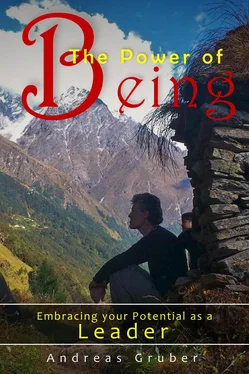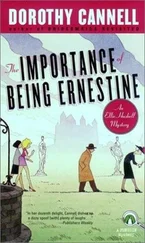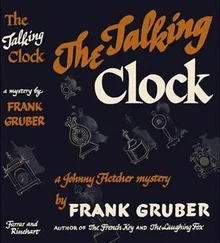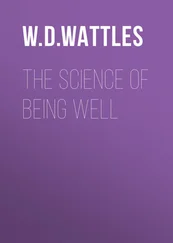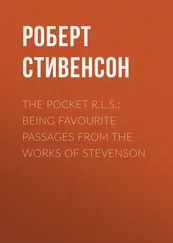We are giants in terms of doing, but dwarfs when it comes to being.
When it comes to seeing our impact, we tend to think about our actions, and rarely do we consider our being. There is a lot of action on the sun for example. The sun produces heat and light. We thank her for that. That's what makes life possible on earth. But it mostly takes astronomy or theoretical physics to appreciate that the mere being of the sun has an enormous impact on the entire solar system. Its physical mass, keeps entire planets in their proper places. That is a significant impact, but it doesn’t come through doing.
The sun's gravitational force keeps entire planets in place while our power is close to zero because we tend to be hollow.
We all have a strong tendency to be what we are not, to build a better but partly fake personality. We become hollow and empty; our mass diminishes, and therefore, our "gravitational" force goes down. What is your impact beyond doing? If we want to find out, we have to be masters of being, namely to be ourselves in a conscious way, including the inherent qualities we have. Once we are on that track and connected to the bigger picture, we become like Gandhi or Mandela - every move we make will be in the right direction. We stop running in circles.
Think about a person in your life, who moved you deeply and positively, in a way that may even have changed the course of your life. Who was that person? Did he or she have to do something special to touch you? Chances are that merely being there, was enough. It didn't matter what they did. I certainly wouldn't mind being like that. What about you?
Since the word potential refers to unused or latent capability, I dare say that our potential of being is larger than our potential of doing. Ultimately it's like the left brain vs. the right brain. Which one is better? Neither! Which would you prefer to live without? You need both, right? But you probably know that most of us use one side far too much? Since we tend to look at the situation with a polarity view, we think of either this or that. The integrated view is to see both and use both. Besides, we tend to extremes in almost everything we do. We are faced with the very same situation if we look at doing vs. being.
This book is about promoting the power of being. To make being something to strive for, and ultimately reach a state where doing and being is in balance.
5 Where do opinions come from?
Traveling is a great opportunity to learn something about ourselves, partly because we are out of our comfort zone a great deal of the time. What also becomes quite evident is that people in other countries think differently. That is due to the cultural background. Our opinions get influenced by our culture as well as our religion, social background, family, education, etc. All that merges into a belief system. A part of that belief system is our values, which tend to be rather stable over time while our opinions can change quickly and often.
We may, for example, be rather tolerant towards foreigners. Our view is that they contribute to diversity in our country. A few months later a war causes a massive wave of refugees to swamp our nation, at least if we believe the media. We seem to be drowning in foreigners, and so is our opinion. Subsequently, we now form another one, based on the situation we have not yet experienced ourselves, but that is described as a fact in the newspapers. It may all be true, and it may as well not be, but the fact is that our opinions tend to blow like flags in the wind.
"History will be kind to me, for I intend to write it."
Winston Churchill
As I was doing business with a company in Los Angeles in the nineties, large fires were reported to be threatening southern California. I phoned with the owner of that company and asked him if they were in danger. He laughed out loud and said, "No, but we probably have most of the cameras in the world here, and the media people don't have much to do now, so they make this look huge." So sometimes our opinions are shaped by media people who don't have anything else to do or are just looking for the ultimate scoop.
A journalist could make a little bushfirelook like Southern California is threatened.Luckily this never happens!And of course, we would never believe it anyway...
I recently had a long and interesting conversation with a holy man in India. He was extremely well educated by western standards, spoke English fluently and read three newspapers every day. We came to talk about the tragic event in Delhi, of a young woman being brutally gang raped on a bus, leading to her death shortly after. I stated that many women in the west did not dare to go to India on vacation because of this, even though it is such a beautiful country. This kind man could sincerely not understand why, because according to his knowledge every second woman in the West has been raped anyway. I was stunned. But this was not ignorance from his side; this had been reported by serious Indian newspapers. The problem was that he would rather believe an Indian newspaper over a westerner who lives in the place he's talking about. It seems we are lost if we let media set the level of our knowledge.
Mass media either stops a war, starts a war, or keeps it going.They can be as much part of it, like rifles and bullets.That's where we get our news, facts, and truths.
Opinions tend to be based on assumptions that are based on information. If the information we have, is also unreliable and on top of that we are unaware of our very own assumptions, how can we then trust our opinions? It may never have occurred to you that you could be unaware of your assumptions, right?
I assure you that I had many exciting meetings when I gently started asking what assumptions a person’s opinion or idea was based on. Often people hadn't really thought about it. We call this, jumping to conclusions. I made that mistake myself many times, and I still do. Probably because I’m assuming that I know, or thinking I'm so smart. How many fights and wars can we put on this account, just within the last century? People jumping to conclusions, based on uncertain facts and unquestioned assumptions, leading to the wrong actions.
The foundation of a good decision is to question our sources, assumptions and the process, being aware that we are biased.
Furthermore, a person who is trapped in a belief system does not really have a free mind or a free will.
Many of the classic Greek philosophers were concerned with, how to reason properly to make the best use of the mind within the framework of logical reasoning. One could study that subject for quite a while, and still not know, what to do practically on a daily basis. I had the privilege to spend one month with one of the clearest thinkers alive in Europe. His IQ is supposed to be higher than Einstein's IQ was. We spent, at least, two hours per day, only the two of us, explicitly reasoning about seemingly unsolvable questions. I would deliver the questions, and he would mainly deliver the reasoning while he was thinking out loud.
To reason is ancient nonsense.To reflect is a sign of sadness.Awareness is a word in the dictionary.To daydream is the new thinking.What's next?
Over the years, I collected and tried many different approaches to reasoning. I won't bore you with all the details, but here are a few that may interest you:
To question the assumptions behind your opinions. List them and dissect them one by one.
To ask yourself what you do NOT know about a certain matter.
To test your attachment to an idea, by assuming the opposite and observing your natural impulse or reactions.
To pay attention to the hunch you had about something, in the very first moment, you heard or saw it, and follow that path consequently.
Читать дальше
